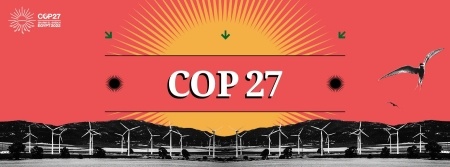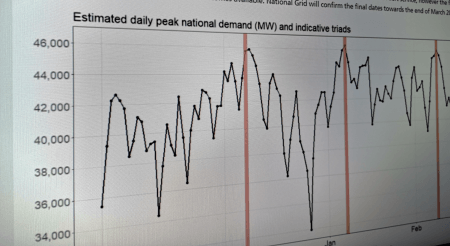
Why Demand Response should be top of your new year’s energy strategy in 2017
Are you satisfied with your current energy efficiency and demand management measures?
If the answer’s, "Yes", that’s great news! You’re one of a growing number of businesses already reaping the cost benefits of demand management.
If the answer’s, "No. We’re looking into it but are still deciding what’s best for our business" or "No. We don’t have the upfront investment for such a massive project", please read on.
I’d like to show firstly that the current energy climate means it’s worth taking action sooner rather than later to manage your demand. And I’ll show you the steps involved in getting DSR enabled.
Here’s a sobering statistic for January. The UK’s capacity margin (demand and supply) has started to decline and will continue in the next decade. The margin in 2012 was 19%. As at 2016 this stood at 6.6%* [National Grid Winter Outlook 2012/13, p4 and 2016/17, p14].
The supply of electricity is becoming increasingly decentralised. Supply is more intermittent due to the rise of renewables. Meanwhile, smart technology has opened up possibilities for the demand-side to play a more active role in helping to balance the grid. So it’s no longer a case of consumers relying on available capacity from the grid, it’s about consumers creating more capacity volume from a number of different sources. So there’s a real opportunity for businesses to get rewarded for making capacity available by adopting a responsive approach to their energy management.
The time is now
2016 saw further changes to the energy market. And 2017 promises to be no less eventful, with changes to:
Infrastructure - Ofgem has started the year with a proposal that National Grid legally separate their System Operator identity from the transmission operator’s existing licence. [Utility Week, 13/01/17]. The aim is to avoid conflict of interest but also drive competition, innovation in the smart/ demand management space and to give customers better value.
Regulation - From 1 April 2017, P272, the mandatory regulatory change for electricity meters in classes 05-08 (or Max Demand Meters) means that over 100k UK businesses will be moved to ½ hourly meters.
Costs - The market continues to fluctuate, with some economic experts predicting that power prices could rise by 5-10% during the next 12 months in response to the effects of Brexit on Sterling [The Energyst, December/ January 2017, p40]. Non Energy costs are of concern to many customers as prices for distribution and transmission remain volatile.
Renewables - Increased reliance on renewables is changing the availability and supply of electricity. 2016 saw our cleanest year to date, with 50% of the UK’s electricity coming from wind turbines, solar panels, wood burning and nuclear reactors between July and September 2016* [The Guardian, 22 Dec 2016]. We’re also witnessing the adoption of new ways to harness energy, for example tidal lagoons.
What do the above have in common? They’re changes with far-reaching impact on the way we consume energy and what we pay for it. But these are positive changes for DSR. Each will open up opportunities for more businesses to become DSR providers and for more innovation in this space (particularly when P272 comes into force). In other words, the time is now for joining the businesses above who can answer ‘yes’ to the question at the start of this blog.
So how do you go about it? There are many schemes and many ways to get involved but here are the key steps towards becoming DSR enabled. EDF energy acts as aggregator for DSR so we have experts who can support you each step of the way.
1. Assess
The first step is to analyse your current electricity use and understand how suitable your business is.
What are your demand patterns?
What assets do you have? Flexible assets might include HVAC, Refrigeration, Cold Storage, Water heating, pumps, compressed air, etc.
Do you have backup generation?
Once we have this insight, we can identify where your DSR potential is and what scheme is right for you. From March 17 we'll launch our DSR Proofing Tool which will provide an enhanced analysis of your consumption data.
dentify your DSR barriers
2. Identify your DSR barriers
Your whole business needs to embrace DSR, from senior board members down to frontline staff. This can often be a barrier for many businesses as stakeholders fear disruption to their operations or customers. So test it. Many customers test DSR on one or a small group of sites first. They then use the results to calculate the revenue benefit and provide the reassurance to key stakeholders that there’s no loss of control, interruption to operations or impact to customers.
3. Get enabled
At this point you’ve assessed the DSR feasibility and identified where you want to flex. You’ll sign contracts with us based on site assessments and financial proposals we provide. The technology is installed and you’re ready to go. It can take between 6-8 weeks to get to this step.
4. Stay ahead
Once you see the financial benefits, you may decide to commit further assets or rollout to further sites. Once you’re participating there’s only ever more ways to flex and earn revenue.
The new normal
DSR is about being flexible and managing your energy intelligently. There’s little or no upfront cost and you control how much you want to flex. It will play a vital role in balancing the system in 2017 and beyond. In other words, it’s here to stay.
Get in touch. You can email DemandSideResponse@edfenergy.com or call us on 07875 117 807.
For more information please visit our dedicated webpage.
Post a comment
Related articles

What the Energy Bills Discount Scheme means for businesses

